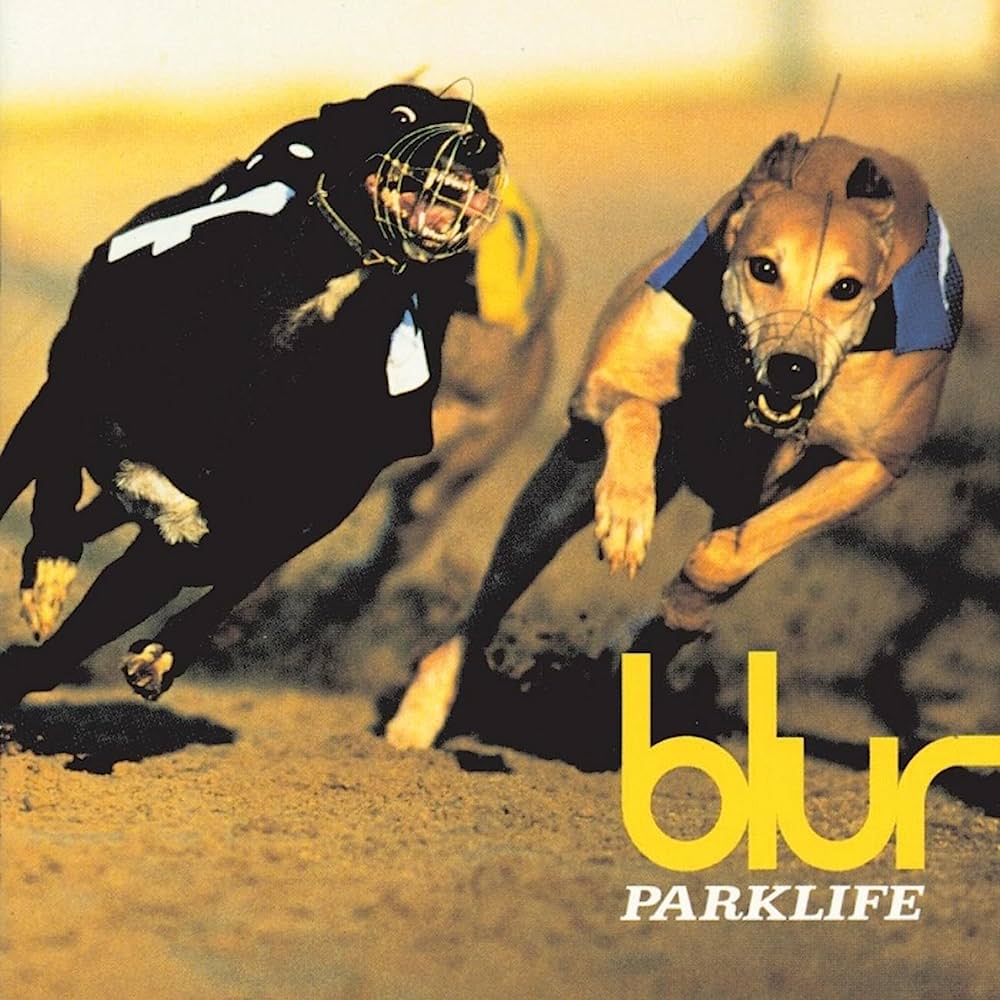This article originally appeared in the August 1994 issue of SPIN.
The Brüt commercials are right: Men are back! Except they’re the kind of men who used to wear sideways haircuts on MTV, who spent the ’80s flaunting tubular British accents and prancing through the dreamscapes of bored American teens from coast to coast, from KROQ to WBCN. Blur cultivates that new-wave look and sound, evoking the halcyon days of yore when London produced weekly pop sensations the way today’s American college towns produce Superchunk clones.
Like any self-respecting ’80s English band, Blur speaks earnestly in interviews about living in a post-rockist age of information and media simulacra, but their art-school pedigrees, impeccably tailored keyboards, and sense of teenage pathos are all in a grand rock ‘n’ roll tradition. Where have you guys been?
Blur — again, like any self-respecting ’80s English band — specializes in concept albums, and Parklife, raising the stakes of 1993’s Modern Life Is Rubbish, is its grand statement on the fall of the British empire of signs. If Blur doesn’t have anywhere near as much to say, musically or lyrically, as its models — the Kinks, the Jam, Madness — give the guys credit for cool haircuts and an album’s worth of sunny melodies.
The U.K. smash “Girls & Boys” is a scrumptiously sleek Duran-gänger, sounding exactly like the Fab Five circa “Planet Earth” and “Hungry Like the Wolf.” Over a Eurodisco bass line, vocalist Damon Albarn croons about a beach full of teenagers stewing in their own autoerotic juices: “Nothing is wasted / Only reproduced / You get nasty blisters / Deep obsession, but we haven’t been introduced.”
A couple of Internet newsgroups devoted to Depeche Mode and the Pet Shop Boys recently polled subscribers about “alternative music,” and Blur earned a C, making it slightly more popular within this all-important demographic than Sunscreem or Thousand Yard Stare, but not quite as popular as Renegade Soundwave or Engines of Aggression. It’s a game of inches out there trying to impress today’s cyberspace Anglophiles. I hope Blur can face the challenge — it’s nice to know there’ll always be an England, and more importantly, there will always be English groups dotty enough to put their names on songs that go, “I’d like to roll in the clover / With you over and over / On the white cliffs of Dover.”





